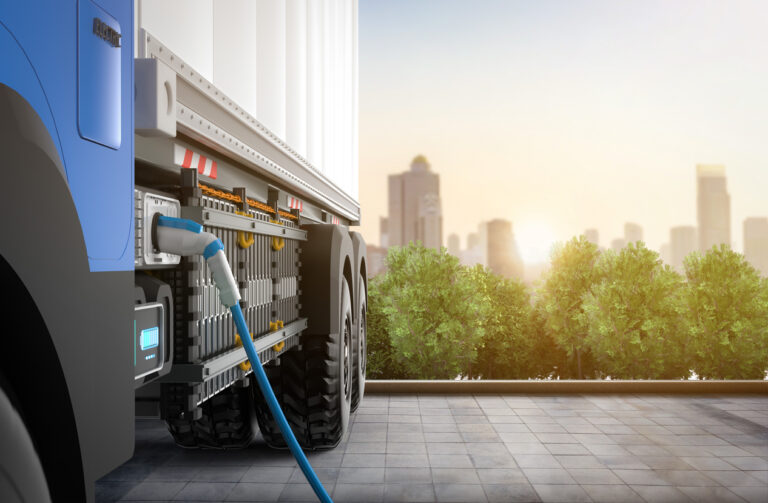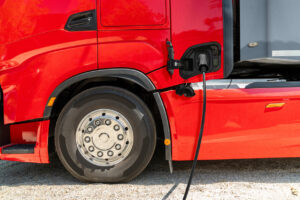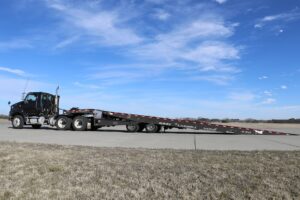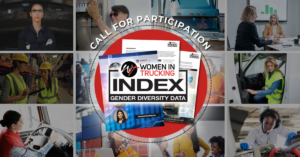SAN FRANCISCO, Calif. — Smart Freight Centre (SFC) is announcing new members of the I-10 Shipper-Carrier Coalition to test long-haul heavy-duty battery-electric vehicle operations along the US I-10 corridor between Los Angeles, Calif. and El Paso, Texas.
“We’re proud to work alongside some of the world’s biggest shippers and carriers to chart a path towards electrified transport that is achievable and scalable,” said Neha Palmer, CEO and co-founder of Terawatt Infrastructure. “As we continue to take new fleet charging hubs live, we look forward to sharing important learnings to advance the entire electric truck ecosystem and demonstrate what’s possible with regards to EV technology, emissions reductions, and cost parity.”
According to a media release, Terawatt will serve as the strategic charging solutions partner for the project, planned for 2027. Coalition members will use six of Terawatt’s owned charging hubs along the I-10 corridor, enabling shippers and carriers to test electric truck operations, supported by Terawatt’s software, operations, maintenance and smart charging. Each site offers Megawatt Charging System (MCS) capable chargers, supporting the latest in Class 8 electric and autonomous vehicles, and will also provide advanced security features to protect vehicles, cargo, and equipment.
New members include:
Previously announced members including AIT Worldwide Logistics, Maersk, Microsoft and PepsiCo.
C.H. Robinson
“At C.H. Robinson, our commitment to sustainability is unwavering,” said Rachel Schwalbach, vice president environmental, social and governance. “We leverage our unmatched expertise and scale to connect the world through technology, innovation, and tailored solutions, addressing complex sustainability challenges in global supply chains. Collaboration is key to driving meaningful progress toward climate smart solutions. We’re excited to help enable this infrastructure expansion to bring additional sustainability offerings to our 450,000 contract carriers and 83,000 customers across small and global businesses alike in major industries like retail, automotive, energy, and healthcare. This important work will not only benefit them but also build shared value and a more sustainable future for all.”
DHL Supply Chain
“As one of the world’s largest third-party logistics providers, DHL Supply Chain is committed to achieving net-zero GHG emissions by 2050,” said Stephan Schablinski, vice president GoGreen for DHL Supply Chain North America. “We have embarked on a major decarbonization strategy across our network of more than 500 operations in North America, including operating 30% of our heavy-duty fleet with zero or near zero emission technologies by 2030. We welcome the I-10 Coalition as the existence of an accessible and reliable network of EV charging infrastructure is critical to enabling the implementation of medium- and heavy-duty EVs that utilize the heavily trafficked I-10 trucking corridor.”
Electrolux Group
“Our industry is dependent on complex supply chains and our overall sustainability impact often depends on decisions made in our supply chain,” said Tara Helms, director of sustainability. “We have an obligation to take ownership and see our suppliers as an extension of ourselves. The work of this consortium explores the possibility to enable electrified transport across the I-10 corridor, which promotes progress and sustainability, not only in our own supply chains, but for supply chains around the world.”
IKEA
“At IKEA, our goal is to reduce the relative GHG emissions from our product transportation by 70% by 2030 and to only use zero-emission heavy-duty vehicles and ocean vessels by 2040,” said Doris Martetschläger, manager, IKEA supply chain operations. “As one of the largest transportation buyers globally, with approximately 1.7 million shipments per year, we recognize our responsibility to support transportation decarbonization and innovation. This decade is crucial for taking action to decarbonize the movement of goods, and no individual actor can do it alone,” she adds. “The I-10 corridor pilot ensures that charging infrastructure develops alongside EV truck deployment and it demonstrates how we can create scalable solutions together on long distances – a ground-breaking example of multi-party collaboration across four states.”
Strong Collaboration
“Electrifying long-haul freight requires bold action and strong collaboration across industries,” said Christoph Wolff, CEO of SFC. “By expanding our consortium, we are building the partnerships necessary to drive real-world deployment of zero-emission trucking at scale. This corridor will serve as a model for the future of freight decarbonization, demonstrating that the industry is ready to lead the transition.”
SFC is a globally active non-profit organization for climate action in the freight sector. The organization’s goal is to mobilize the global logistics ecosystem, in particular our members and partners, in tracking and reducing its greenhouse gas emissions.
“We accelerate the reduction of logistics emissions to achieve a zero-emission global logistics sector by 2050 or earlier, consistent with 1.5° pathways,” SFC said.










